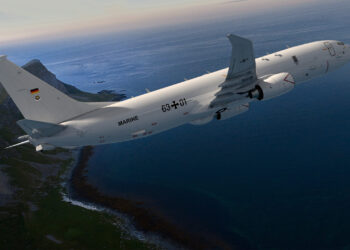DCN, PARIS: French Prime Minister François Fillon has confirmed at a seminar in Rabat that DCNS has finalised the contract for a multimission frigate for the Royal Moroccan Navy.
This front-line multimission fighting ship will be based on the FREMM design and will offer advanced capabilities for anti-air, anti-surface and anti-submarine missions. Innovative engineering solutions, reduced crewing and ease of maintenance were among the key discriminators enabling DCNS to meet the customer’s operational capability requirements.
Executive Vice President and CEO Bernard Planchais commented: “We welcome the decision by Morocco’s highest authorities in favour of the DCNS-designed FREMM frigate to modernise their fleet. This ship will benefit from the many advances arising from the FREMM programme to produce a new generation of front-line vessels for the French Navy. Morocco is our first international customer for this new-generation vessel.
This success opens up new business opportunities for this type of vessel as navies around the world seek to renew and modernise their fleets. Ongoing cooperation with Morocco is a key factor as we pursue development with new customers, particularly the Middle East.”
The FREMM programme — Europe’s most ambitious naval cooperation programme ever — calls for 27 multimission frigates for France and Italy. The 6,000-tonne vessels will be delivered in anti-submarine, anti-surface, anti-air and land strike versions to meet the client navies’ specific needs.
The FREMM frigates for the French Navy are being built under DCNS prime contractorship. These heavily armed ships will carry state-of-the-art weapons and systems including the Herakles multifunction radar, MU90 torpedoes and Exocet MM40 and Aster missiles.
The DCNS group is one of Europe’s leading players on the world market for naval defence systems. To meet customer demands for more comprehensive and integrated systems, DCNS acts as prime contractor for naval shipbuilding, integration and support by combining its own development, marketing and production capabilities with those of selected partners.
To manage the complexity of such projects, the group draws on in-house expertise in naval architecture and systems engineering, ship assembly and integration and equipment design and production, as well as through-life support. The DCNS group employs 13,000 people and generates annual revenues of around EUR 2.8 billion.










